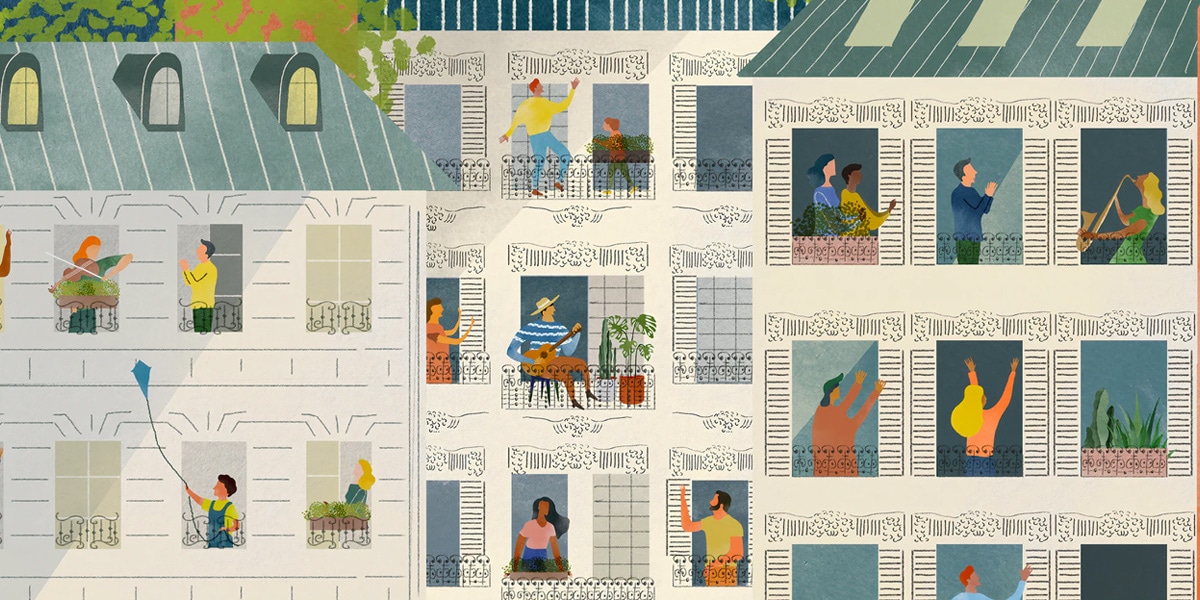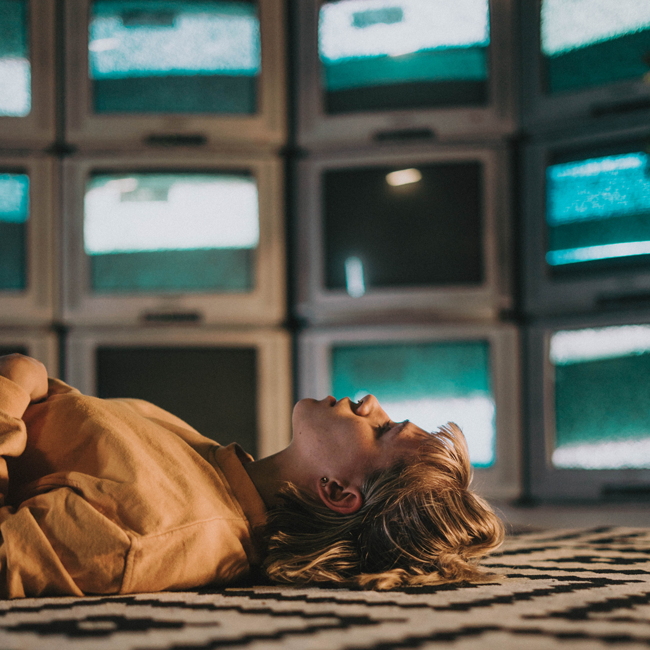
Mutuality of care in a pandemic
Opinion + AnalysisHealth + WellbeingRelationships
BY The Ethics Centre 9 SEP 2020
In the pandemic landscape, individual rights were challenged against a mutuality of care for our neighbours.
At the onset of the pandemic, The Ethics Centre Fellow, Dr Matt Beard, University of Queensland philosopher and health researcher Bryan Mukandi, University of Queensland, and Australian philosopher and Princeton PhD candidate Eleanor Gordon-Smith joined in conversation.
Together they discussed, dissected and explored a range of ethical issues rising during the early stages of the pandemic. This extract from the discussion considers Carol Gilligan’s theory around the ethics of care, and in particular her ideas around the mutuality of care and the idea that individual actions impact the whole.
Matt Beard, TEC Fellow:
One of the things that I keep coming back to, is this quote from the feminist philosopher, Carol Gilligan, who championed an approach, “the ethics of care”. She talks about this idea that we live on a trampoline, and whenever we move it kind of affects everybody else in the same way, it makes other people wobble, your activities cause discomfort to others.
And one of the things that this pandemic has crystallized for me is this sense that, this whole idea of this atomized individual with rights that cluster them off and divide us from other people, is kind of illusory. We are radically dependent on other people, we have this interdependence and these mutual obligations that inform our moral response.
And that got me thinking about how difficult it can be to muster that sense of mutual obligation. In a society that does just talk so heavily about ourselves as individuals, we’ve been conditioned to think about ourselves in almost exactly the opposite way to the way that this response requires us.
Have I set this up in the right way? Is it true we’ve been conditioned in this way? How do you think about this?
Bryan Mukandi, Philosopher:
It’s really complex, because on the one hand I think you’re absolutely right. I love that metaphor of the trampoline, and I completely agree, this idea of this autonomous free liberal individual, it just doesn’t stand up to scrutiny. But at the same time, on the other hand, the fractiousness and fracturedness we’re witnessing in the US applies here too, in some really interesting ways, right.
So, yes, we’re all on this trampoline, but the real estate that you occupy on that trampoline makes the world of difference. And we have a kind of social structure, social organisation where there’s an investment in occupying good real estate [so] that when something happens – a natural disaster, a fire, floods, a pandemic – there’s an investment in being in a position of being able to enact something like that illusory autonomy.
I think about Martin Luther King’s idea of an inextricable “network of mutuality”. But he raises this in a sort of moment where African Americans are in a particular kind of relationship with white America. He acknowledges that there’s this mutuality, there’s this connection, but the nature of this connection is one that’s really detrimental to some groups of people as opposed to others.
And I also think about Frantz Fanon contribution to Hegel’s dialectic of recognition. This idea that our selfhood emerges in relationship with others, it’s like it falls apart in the colony because in the colony the white doesn’t want the colonized recognition, they want their labour.
So I think, while on the one hand, COVID has shown us that this ideal of autonomy – it doesn’t stand up to scrutiny. It’s in really interesting ways though, I think it may, at least for some groups of people, legitimate this project of striving towards that kind of autonomy of occupying the best possible real estate on that trampoline, as opposed to reconfiguring the trampoline itself.
Eleanor Gordon Smith, Philosopher:
It’s a really good question.
And like Bryan, I think it’s a very complex one and one that we’re not going to compress either now or in a pandemic writ large. One thing I think that is kind of a shame for me living in the states and seeing the way the states is covered internationally is the way that a lot of the pressure to reopen is construed in these kinds of individual autonomous terms.
I have a lot of family and a lot of friends who I think are really genuinely very concerned about my proximity to New York at the moment. They feel like crisis, real proper, ‘everyone’s dead’ crisis, like blood –in–the–streets–type crisis, is right around the corner.
And my suspicion about why they feel like that is that they’ve seen these videos of women hanging out of cars at intersections blowing the horn at medical workers or protesters walking into government buildings, people with the American flag painted on their face, holding banners about the right to return to work.
These people are both, they’re a very individualistic face of this movement and the movement that they claim to be espousing is very individualistic. They’re making claims about people’s individual rights to get back to work and they are doing so claiming to speak as individuals.
But one of the things that I think it’s a shame that [coverage] obscures is that the pressure to reopen America comes from the fact that it’s a non-accidental feature of the US American system and the US economic system that it wants people to be back at work more than it wants them to be safe and well.
We encounter that from the mouths of individuals who present themselves as autonomous in saying things like ‘the cure cannot be worse than the disease’, but the pressure isn’t just from rhetoric or from individuals, it’s from the way the system is set up.
You look at the kinds of costs and debts that Americans incur just for functioning. Like if you get sick, that costs money and that creates debt, if you have a higher education system, even one that is continuing on Zoom at the moment, that costs money and that causes debt.
Both of these things coupled with just the usual systems of credit means that most Americans are in eye–watering amounts of debt, and then debt has interest which means that you’re incentivized to get back to work as fast as possible and you put people in a position where it’s not only rational but critical to get back to earning money because it costs money to earn less.
The way the system functions is such that not only do you create all these pressures, it’s then coupled with this narrative of individualism, telling people that both the source of the problem and the nearest solution is to be conceived of in these individualistic autonomous senses.
It’s a real shame when we reinforce and circulate these images of Americans protesting in the way that they are right now, because we obscure the fact that even these apparently maniacally individual faces are in fact the product of the same system that crushes the rest of us.
This is an extract from a live-streamed event. Watch the full conversation from FODI Digital event, Ethics of the Pandemic, below. Don’t miss our next live-stream events at www.festivalofdangerousideas.com.
Ethics in your inbox.
Get the latest inspiration, intelligence, events & more.
By signing up you agree to our privacy policy
You might be interested in…
Opinion + Analysis
Relationships, Science + Technology
We are being saturated by knowledge. How much is too much?
Opinion + Analysis
Business + Leadership, Relationships
Game, set and match: 5 principles for leading and living the game of life
Opinion + Analysis
Relationships
Power and the social network
Opinion + Analysis
Relationships




